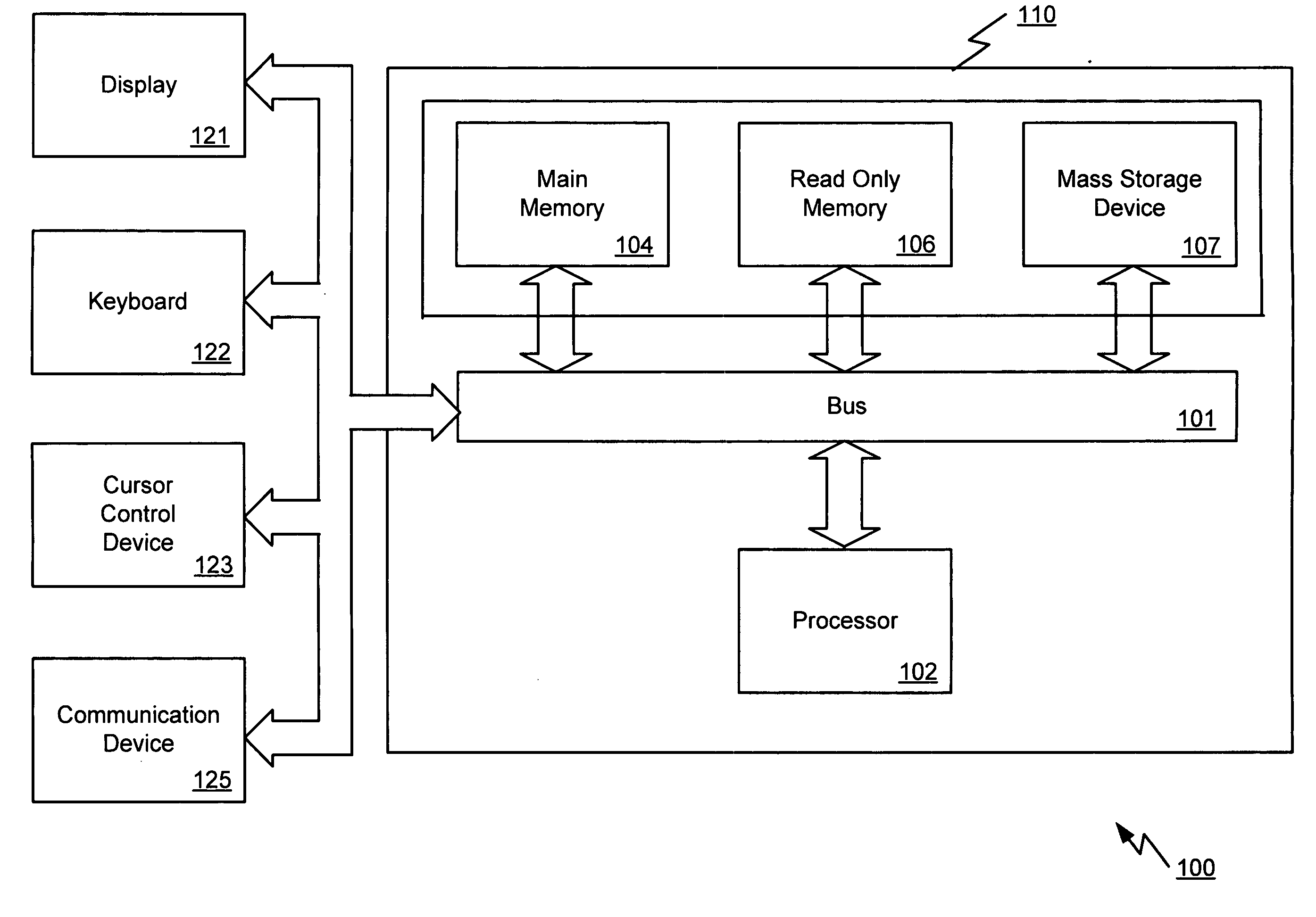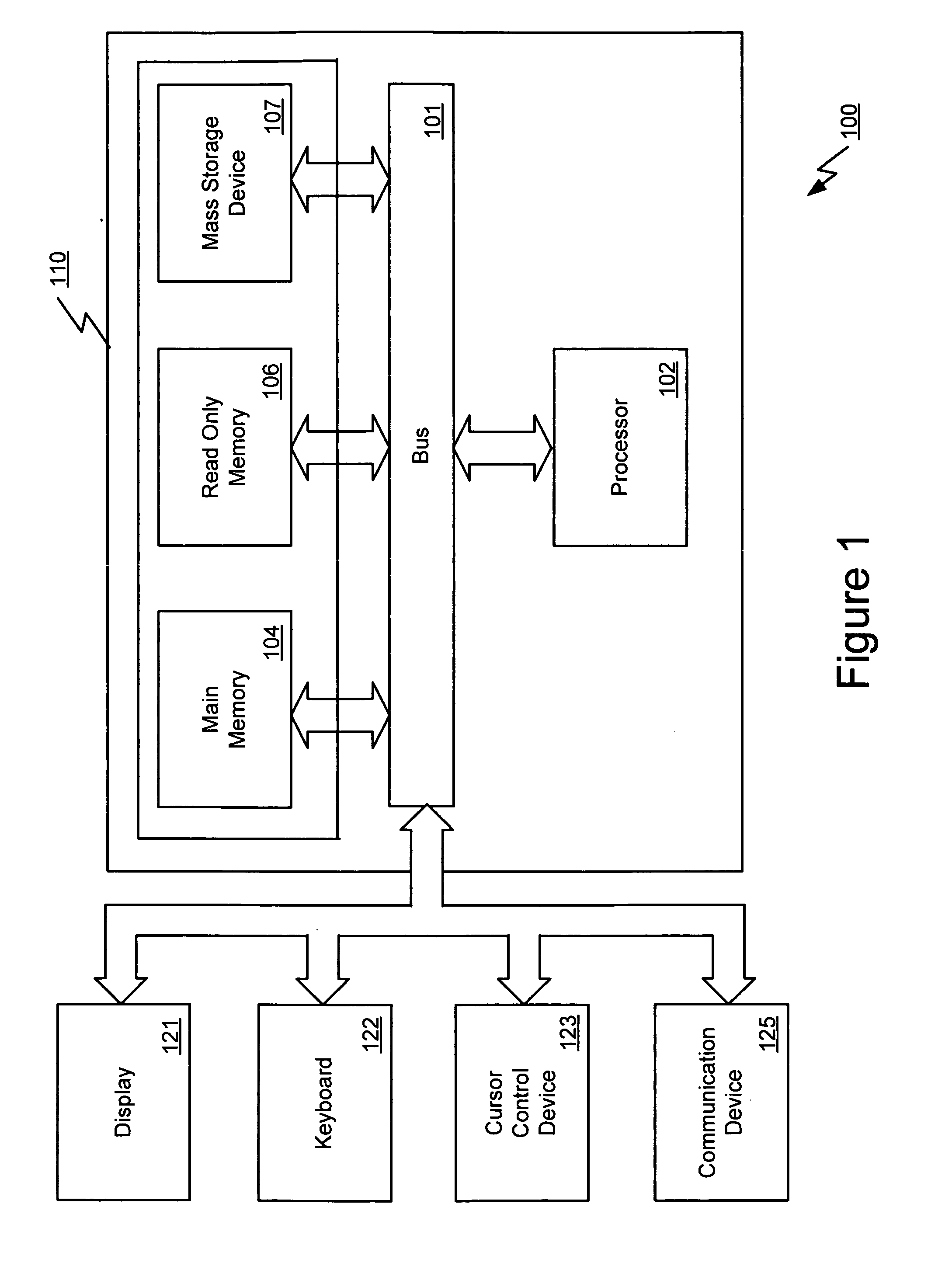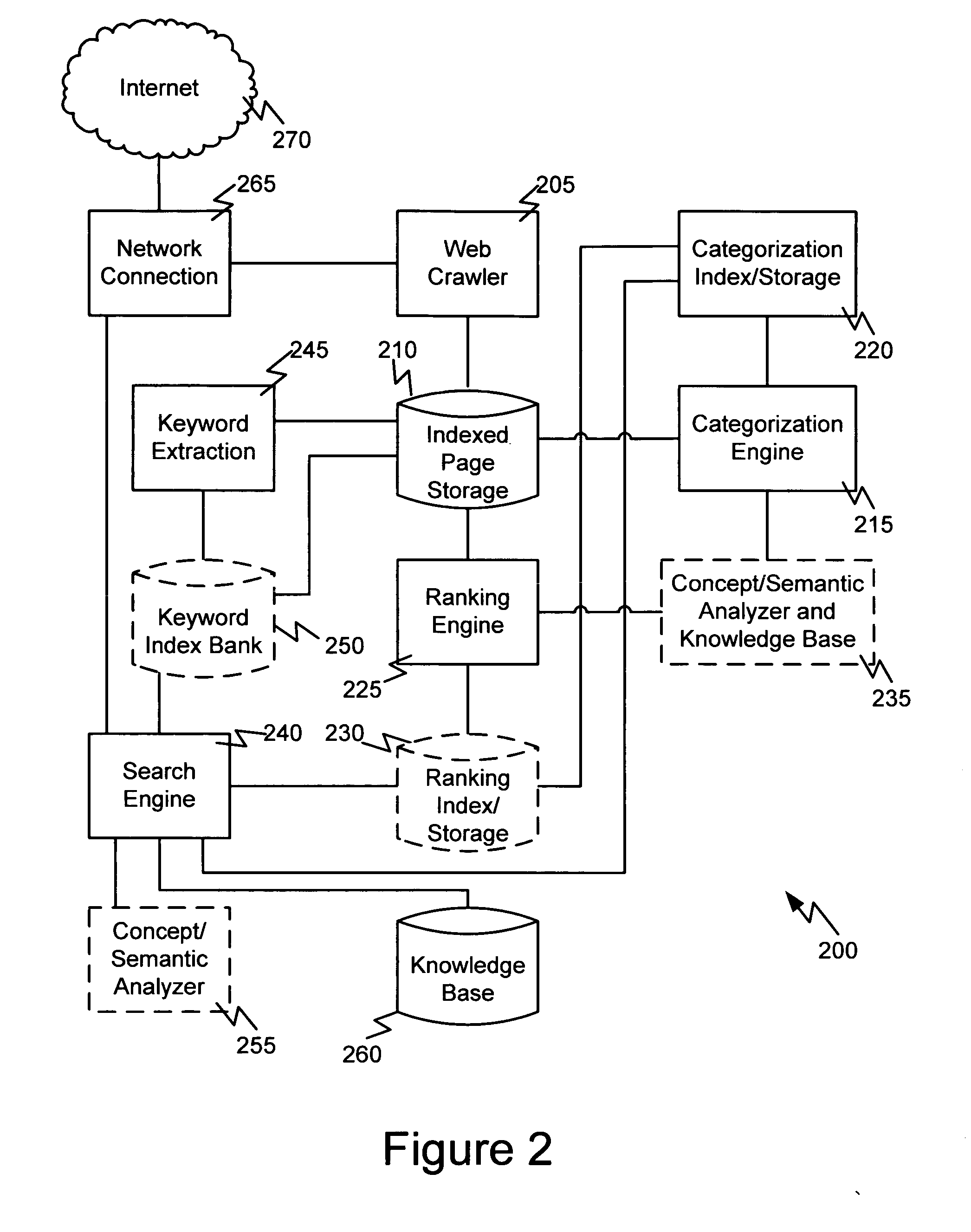Advanced search, file system, and intelligent assistant agent
a file system and advanced search technology, applied in the field of advanced search, file system, intelligent assistant agent, can solve the problems of insufficient and antiquated information retrieval and management system, general lack of intelligent assistance for human users, inefficient and manual search process,
- Summary
- Abstract
- Description
- Claims
- Application Information
AI Technical Summary
Benefits of technology
Problems solved by technology
Method used
Image
Examples
Embodiment Construction
[0043] Reference will now be made to the drawings wherein like numerals refer to like parts throughout. Exemplary embodiments of the invention will now be described. The exemplary embodiments are provided to illustrate aspects of the invention and should not be construed as limiting the scope of the invention. When the exemplary embodiments are described with reference to block diagrams or flowcharts, each block represents both a method step and an apparatus element for performing the method step. Depending upon the implementation, the corresponding apparatus element may be configured in hardware, software, firmware or combinations thereof.
[0044]FIG. 1 is a block diagram illustrating an exemplary computer system upon which embodiments of the present invention may be implemented. In its most basic configuration, system 100 typically includes at least one processing unit 102 and memory 104. Depending on the exact configuration and type of computing device, memory 104 may be volatile ...
PUM
 Login to View More
Login to View More Abstract
Description
Claims
Application Information
 Login to View More
Login to View More - R&D
- Intellectual Property
- Life Sciences
- Materials
- Tech Scout
- Unparalleled Data Quality
- Higher Quality Content
- 60% Fewer Hallucinations
Browse by: Latest US Patents, China's latest patents, Technical Efficacy Thesaurus, Application Domain, Technology Topic, Popular Technical Reports.
© 2025 PatSnap. All rights reserved.Legal|Privacy policy|Modern Slavery Act Transparency Statement|Sitemap|About US| Contact US: help@patsnap.com



